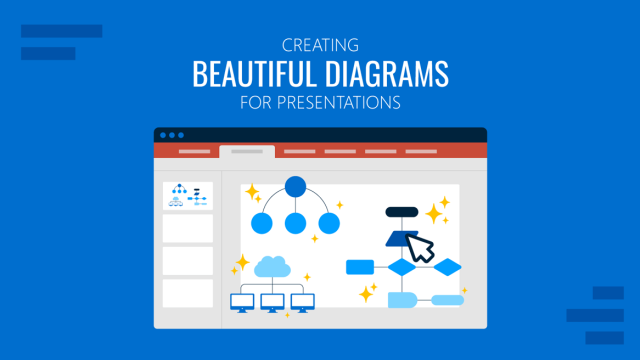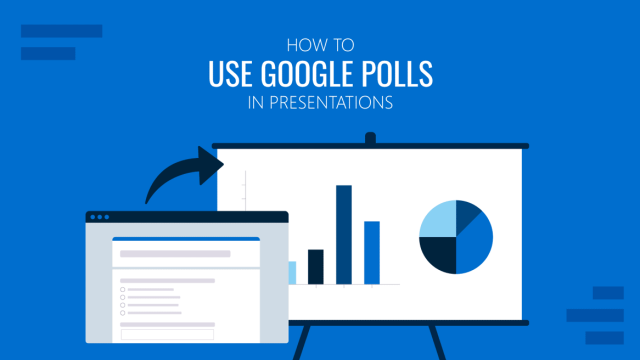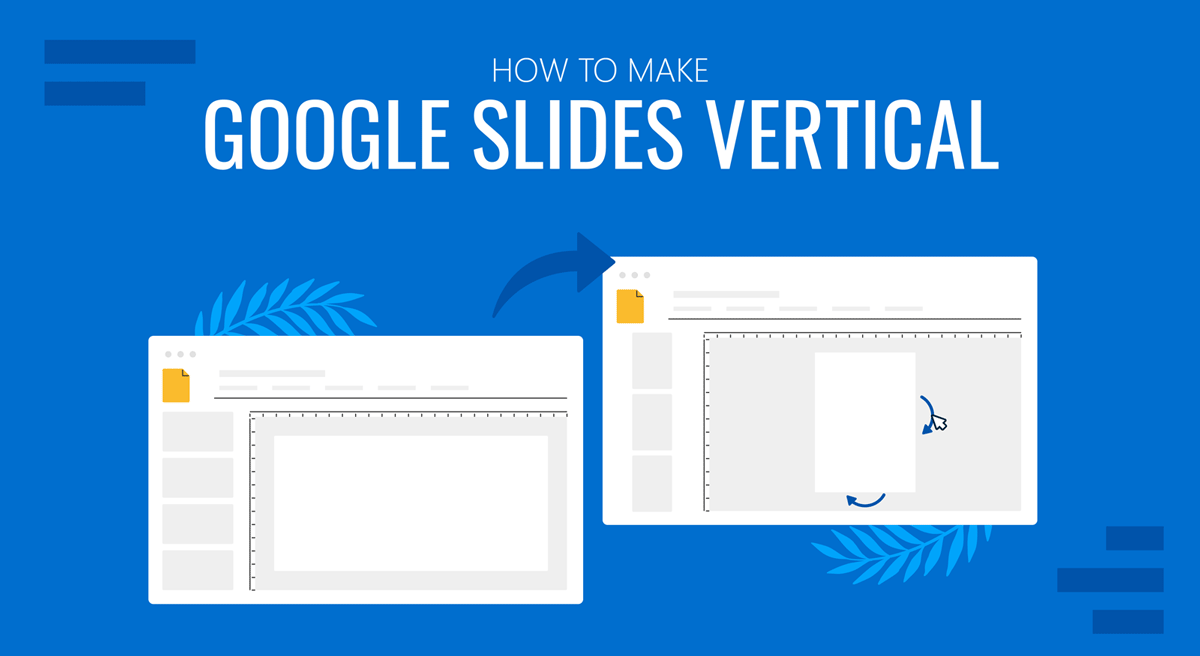
Presenters frequently ask how to change Google Slides to portrait orientation. This includes not only the Standard 4:3 slide design but something more customized to accommodate infographics, tables, charts, dashboards, and legal documents or to make the slide more focused for mobile UIs.
In this article, we will go through the process so you can make Google Slides go vertical. It’s more than just how to rotate a Google Slide when the design is already done; but how to actually set up your layout to design a vertical slide directly. Let’s get started!
Change Slide Orientation in Google Slides
To make Google Slides vertical, go to the File menu and scroll down to Page Setup.
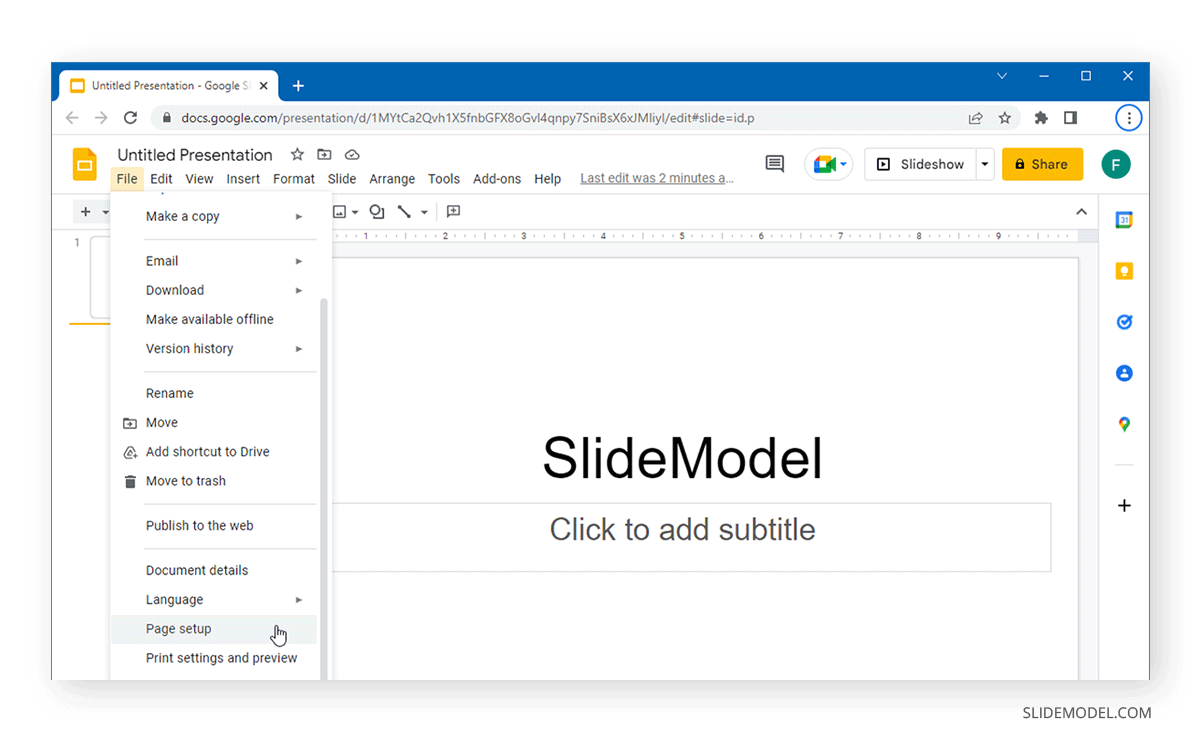
This will open a menu where you can choose between Standard 4:3, Widescreen 16:9 or 16:10, and Custom orientation.
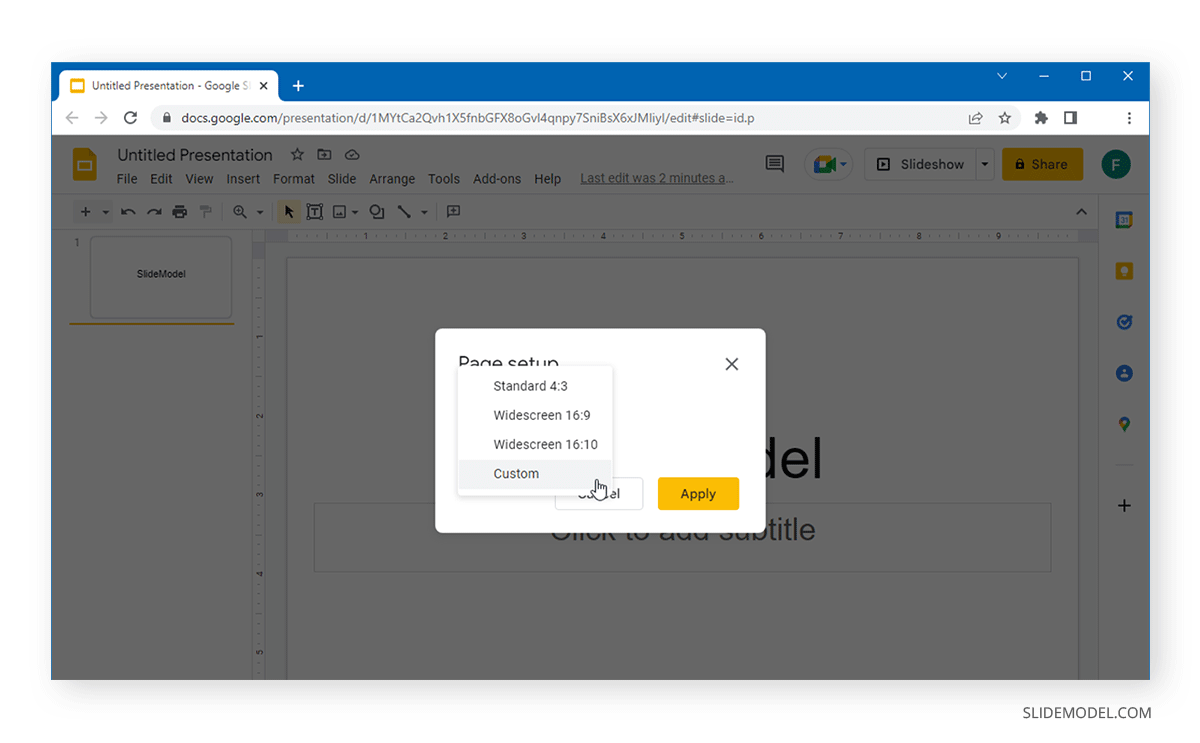
The menu also provides options to change the layout by inches, centimeters, points, and pixels. Add the desired size for your slide and click Apply. You can get the help of online tools to obtain the exact dimensions for the “paper” area to work.
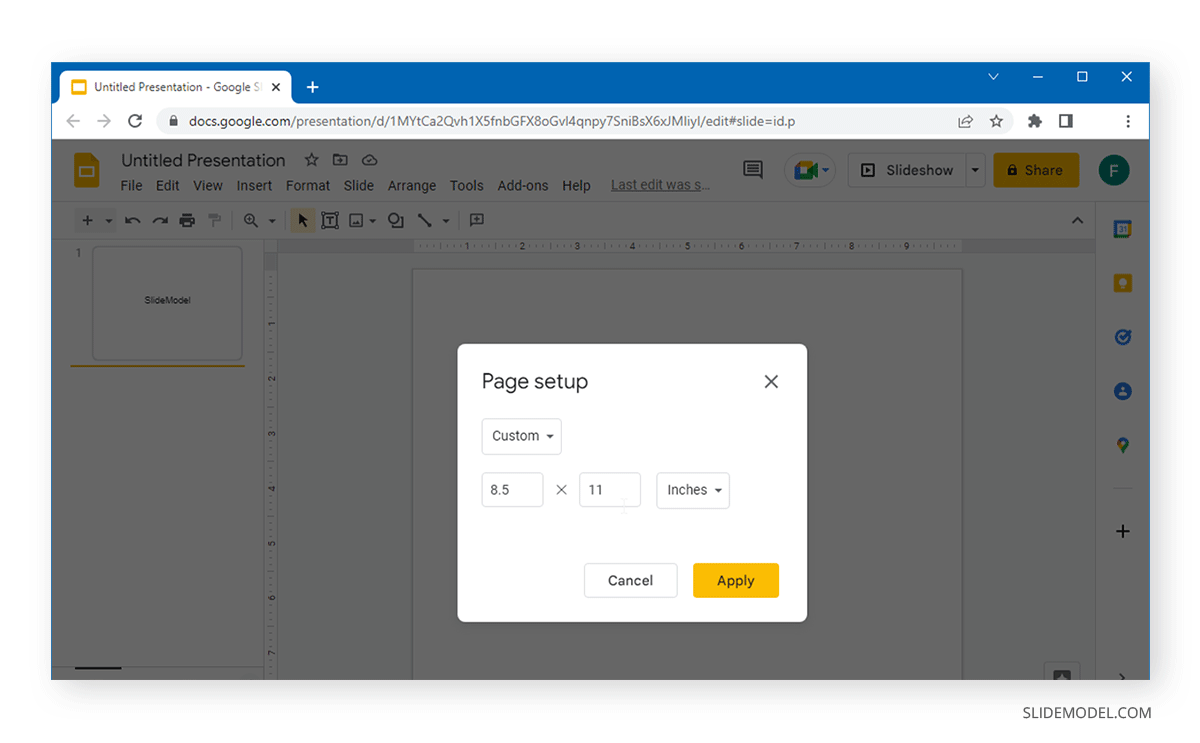
You can choose a size that best matches your needs. For example, to insert an illustration, such as a diagram to a slide, check the image size in image properties and set the page accordingly. The below example shows a vertical layout in 8.5 x 11 inches Letter orientation.
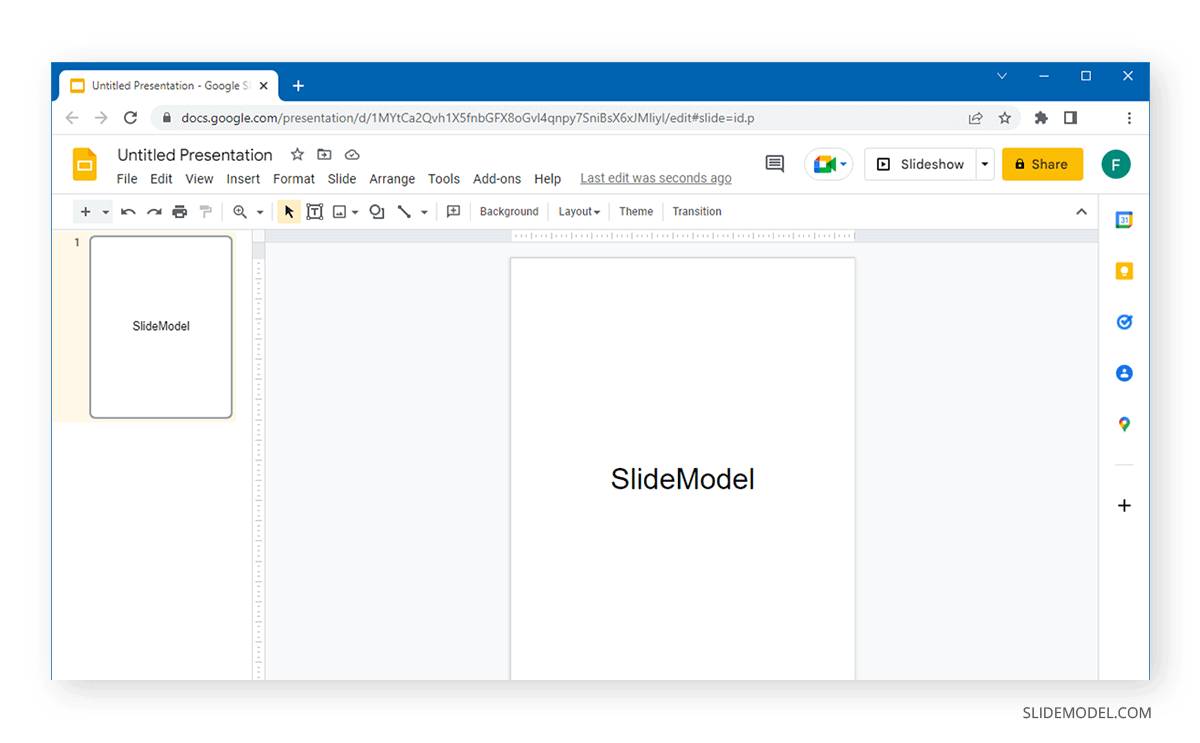
Examples of Vertical Slide Sizes
The example below shows how you can use custom orientations using Google Slides Templates to accommodate content that might be suited to a vertical layout. If you aren’t sure about which one to use, simply focus on increasing the height of the page to give it a vertical design.
You can also check orientations for vertical layouts such as Legal (8.5 x 14 inches), Letter (8.5 x 11 inches), Tabloid (11×7 inches), and Ledger (17×11 inches). These standard sizes might also be handy if you need to print the slides for offline documentation. However, you don’t necessarily need to stick to a standard size and can customize the slide size according to need.
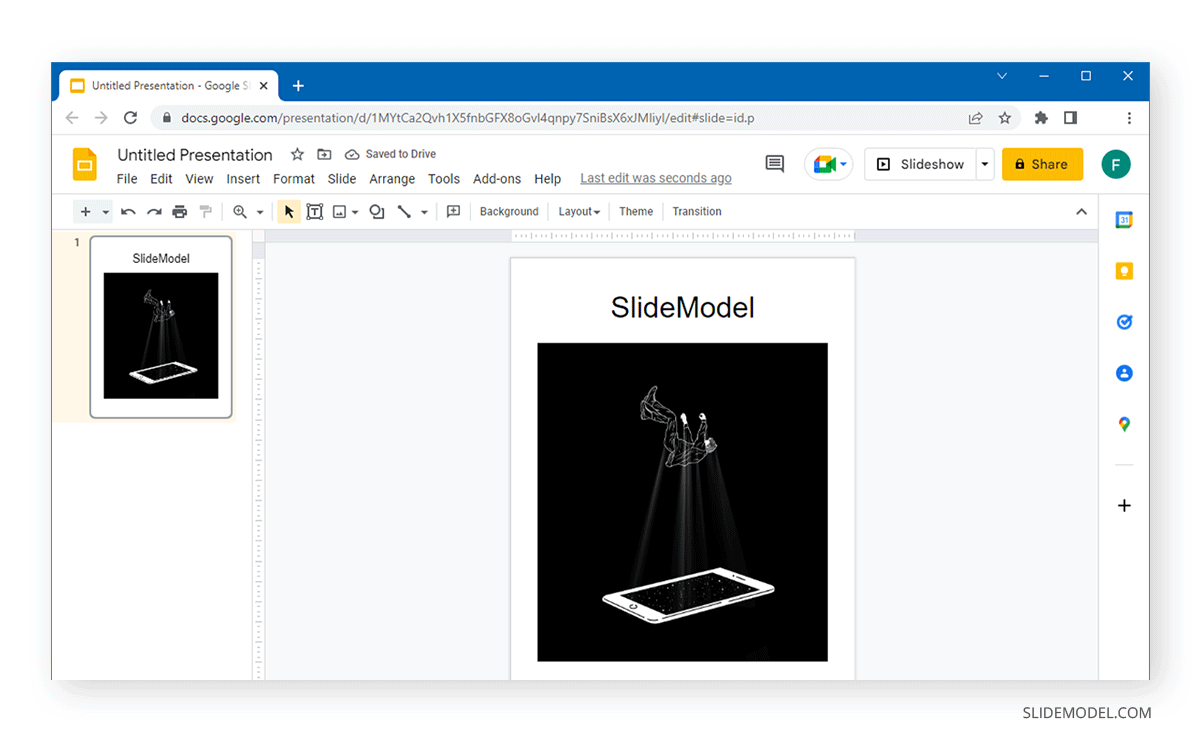
IMPORTANT: Unlike Google Docs, Google Slides does not allow setting a different page size for selected content. Once you set up a size for your presentation or change it to portrait, it applies to the whole slide deck and does not enable editing individual slides. Hence, you cannot have a widescreen layout for some slides and a vertical one for others.
FAQs
Why would I want to make a Google Slides presentation vertical?
Making a Google Slides presentation vertical can enhance the readability and visual impact of certain types of content, such as infographics, legal documents, mobile app designs, and detailed charts. Vertical slides are often better suited for printed materials and mobile viewing.
Can I switch back to a horizontal layout after setting my slides to vertical?
Yes, you can switch back to a horizontal layout by returning to the Page setup menu and selecting or entering the desired horizontal dimensions.
What are some recommended dimensions for vertical slides?
Some commonly used dimensions for vertical slides are:
– 8.5 x 11 inches (Letter size)
– 8.5 x 14 inches (Legal size)
– 11 x 17 inches (Tabloid size)
You can also customize dimensions based on your specific requirements.
Will changing the orientation affect my existing slide content?
Changing the orientation may affect how your existing slide content is displayed. Text, images, and other elements might need to be repositioned or resized to fit the new layout properly. Reviewing and adjusting each slide after changing the orientation is a good idea.
Can I create a mixed orientation presentation in Google Slides?
No, Google Slides does not support mixed orientations within a single presentation. The orientation you set will apply to all slides in the presentation. If you need different orientations, consider creating separate presentations or using a different tool that supports this feature.
What are the benefits of using vertical slides for mobile presentations?
Vertical slides are often more compatible with mobile devices, providing a better viewing experience. They can be easier to read and navigate on smaller screens, making them ideal for presentations intended to be viewed on smartphones and tablets.
How can I ensure my vertical slides print correctly?
To ensure your vertical slides print correctly:
– Choose a standard paper size or set custom dimensions that match your printer’s capabilities.
– Use high-resolution images and graphics to avoid pixelation.
– Preview the slides in print layout mode to check for any layout issues before printing.
What types of content work best in a vertical layout?
Vertical layouts are particularly effective for:
– Infographics: Displaying detailed data and statistics.
– Mobile UI designs: Mockups and app designs.
– Legal documents: Contracts and formal agreements.
– Detailed charts and tables: Information that benefits from a taller format.
How to change Google Slides to portrait?
To change a Google Slides presentation to portrait mode, you can change the orientation from File -> Page Setup and choose a custom size where the height is higher than the width.

